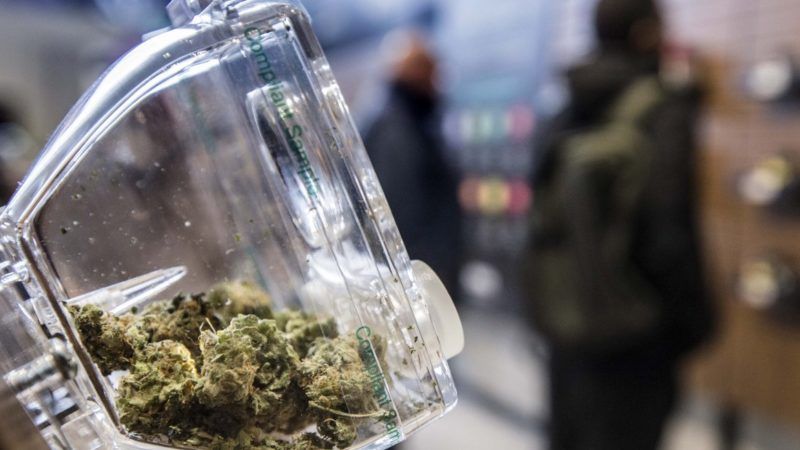Canada Still Not Raking in as Much Marijuana Revenue as Planned
A lesson for other governments making legalization plans

Two years in, Canada still isn't bringing in nearly as much tax revenue from marijuana sales as it had projected. Its mistakes provide some valuable lessons for other governments hoping legalization can balancing their budgets.
The National Post reports that the country's government had expected to bring in $100 million in revenue for fiscal year 2019–20. Now it's projecting only about $66 million in revenue, a third less.
This will be the second fiscal year that Canada has earned less than projected. It's also the second fiscal year that Canada has permitted recreational sales for marijuana. For fiscal year 2018–19, when the country was setting up its marijuana sales system, it took in only half the money it projected: $18 million instead of $35 million.
The biggest problems are top-down controls and a poor roll-out. Canada and its provinces maintain tight controls over permits and monopolize the supply process. When the system was launched, Canada had neither enough marijuana to sell nor enough brick-and-mortar shops to sell it. The process of getting a license to operate a storefront in different provinces could be slow, and governments were not able to respond to the demand. Those who didn't have access to local vendors had to turn to the sole online vending site that was operated by the government and have it delivered.
But Canada does seem to be learning from these lessons, slowly. The percentage of this year's projected revenue gap is smaller than last year's, in part because provinces are easing up and allowing more storefronts to open. Internal statistics showed that retail sales accelerated once people had easier access to shops. That seems like a super-obvious lesson, but at least they're learning it!
One other thing Canada learned as it legalized was not to overtax (unlike California and Washington state, where prices of legal weed are so high that the black market remains dominant). Canada's national statistics bureau determined that legalization has caused the price of black market marijuana to drop in order to compete against the legal shops. Legal marijuana in Canada is costing about $10 Canadian per gram—about $7.50 in U.S. currency. Compare that to Los Angeles and San Francisco, where, thanks to all the taxes on the state and local level, consumers are paying up to $18 per gram.
Canada probably could have avoided some revenue problems if provinces hadn't been so slow to let shops open. It's a lesson people like Rhode Island Gov. Gina Raimondo should keep in mind as she pushes for recreational legalization in her own state.
The Rhode Island Democrat is proposing (for the second year in a row) legalizing recreational marijuana sales in order to fill gaps in the budget with the revenue the state will bring in. To maximize this revenue, she wants to create a complete state monopoly, forcing residents to turn to government-run shops. She would put limits on how much marijuana a person could purchase per shop visit and continue to ban people from growing their own marijuana.
The missed revenue targets in Canada and California should serve as lessons for other jurisdictions looking to legalize. When government looks at new markets solely in terms of the cash it can wring out of them, it may end up getting much less than it expected. Consumers will keep turning to cheaper alternatives—legal or not.


Show Comments (10)